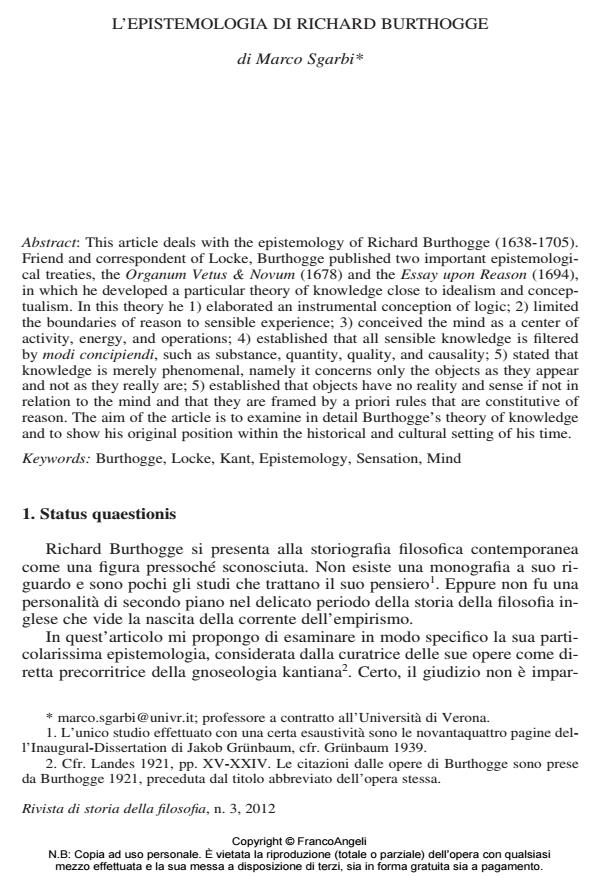L’epistemologia di Richard Burthogge
Titolo Rivista RIVISTA DI STORIA DELLA FILOSOFIA
Autori/Curatori Marco Sgarbi
Anno di pubblicazione 2012 Fascicolo 2012/3
Lingua Italiano Numero pagine 29 P. 493-521 Dimensione file 530 KB
DOI 10.3280/SF2012-003003
Il DOI è il codice a barre della proprietà intellettuale: per saperne di più
clicca qui
Qui sotto puoi vedere in anteprima la prima pagina di questo articolo.
Se questo articolo ti interessa, lo puoi acquistare (e scaricare in formato pdf) seguendo le facili indicazioni per acquistare il download credit. Acquista Download Credits per scaricare questo Articolo in formato PDF

FrancoAngeli è membro della Publishers International Linking Association, Inc (PILA), associazione indipendente e non profit per facilitare (attraverso i servizi tecnologici implementati da CrossRef.org) l’accesso degli studiosi ai contenuti digitali nelle pubblicazioni professionali e scientifiche.
This article deals with the epistemology of Richard Burthogge (1638-1705). Friend and correspondent of Locke, Burthogge published two important epistemological treaties, the Organum Vetus & Novum (1678) and the Essay upon Reason (1694), in which he developed a particular theory of knowledge close to idealism and conceptualism. In this theory he 1) elaborated an instrumental conception of logic; 2) limited the boundaries of reason to sensible experience; 3) conceived the mind as a center of activity, energy, and operations; 4) established that all sensible knowledge is filtered by modi concipiendi, such as substance, quantity, quality, and causality; 5) stated that knowledge is merely phenomenal, namely it concerns only the objects as they appear and not as they really are; 5) established that objects have no reality and sense if not in relation to the mind and that they are framed by a priori rules that are constitutive of reason. The aim of the article is to examine in detail Burthogge’s theory of knowledge and to show his original position within the historical and cultural setting of his time.
Parole chiave:Burthogge, Locke, Kant, Epistemology, Sensation, Mind
Marco Sgarbi, L’epistemologia di Richard Burthogge in "RIVISTA DI STORIA DELLA FILOSOFIA" 3/2012, pp 493-521, DOI: 10.3280/SF2012-003003